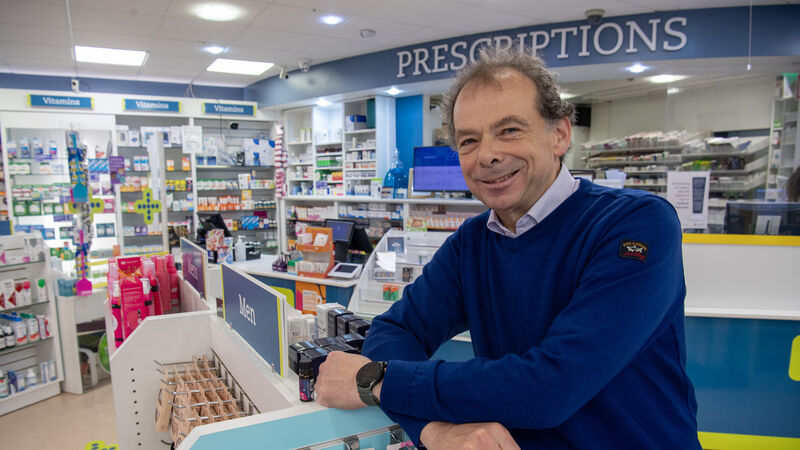Back to the future: why your community's pharmacist is more important than ever

Pharmacist Jack Shanahan, Castleisland, Co. Kerry, pictured at work in his pharmacy, where he provides trusted healthcare advice, prescription services, and community support. Pic: Domnick Walsh
With more than 40 years’ experience as a pharmacist, Jack Shanahan has witnessed many changes in the profession.
Indeed, given that his family has owned and run a pharmacy in Castleisland, Co Kerry, for almost 100 years, spanning three generations, it’s little surprise he has been immersed in the trade since long before he qualified.








